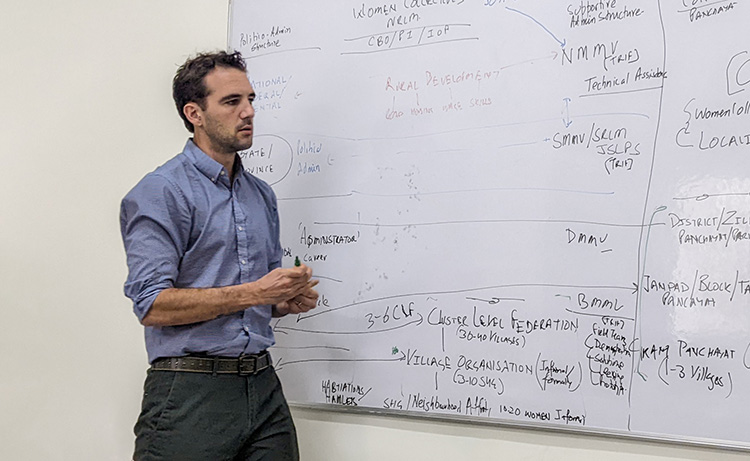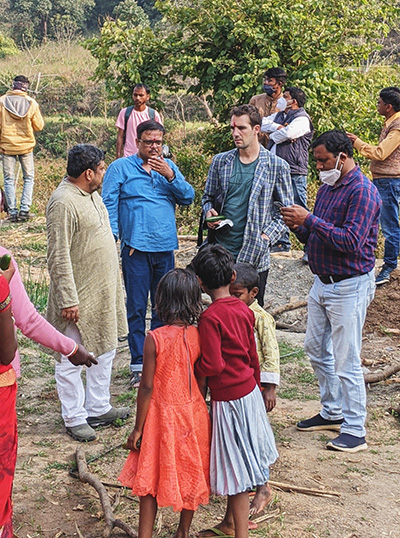
André Nogueira:
Designing for the Future
André Nogueira (Ph.D. DSGN ’19) has tackled design from every angle that you can think of.
He started his career working for several architectural firms, then an interior design firm, then a landscaping firm, then for a furniture design company. He then went on to urban design, always focusing on his family’s humble beginnings and those who would be most affected by a project.
“At the time I was growing up, there were a lot of international organizations taking over the market and low-cost labor. You could see this was not doing very much good,” Nogueira says. “Either you work for them and contribute to a reality that is not sustainable but you benefit yourself, or you try a different path to explore alternative systems.”

Nogueira received some national recognition for helping to redevelop favelas—informal settlements consisting of densely packed, often self-built houses—in Rio de Janeiro and São Paulo in Brazil, while also doing development work in the rural parts of the country, from the farmlands to the banks of the Amazon River.
But he began noticing problems.
Mountains got leveled to offer new residences a better view. Rivers were dried or rerouted to create aesthetically pleasing ponds. Local grocery stores were closed when larger conglomerates moved in.
“When you do that, you’re not accounting for the real costs. You’re creating a debt for future generations,” Nogueria says. “You can make a development extremely profitable—or great, with a great profit.”
So Nogueira co-founded his own urban design studio, and strove for sustainability—increasing green areas, designing sidewalks that redirect water in the right way, creating new waste management systems. Still, over time, Nogueira found that he was falling prey to the same driving factors as in his previous jobs. He became motivated to influence the design process at a higher level.
Shortly after graduating with a Ph.D. from the Institute of Design (ID) he co-founded the Design Laboratory at the Harvard T.H. Chan School of Public Health.
His research there caught the attention of the Bill and Melinda Gates Foundation, the United States Agency for International Development, the U.S. Fish and Wildlife Service, and more. Most recently, he was awarded the 40 Under 40 Public Health Catalyst Award by the Boston Congress of Public Health.
He has since focused on developing more integrative design processes that combine inputs from those working in the lowest rungs of institutions and organizations with those leading the strategic decisions at the top.
Currently, his laboratory is working on applying design to bureaucratic decision-making in rural India. So far, they’ve held workshops with the country’s top bureaucratic institutions, including the ministries of Agriculture and Farmer Welfare, Fisheries Animal Husbandry and Dairying, Labour and Employment, and Skill Development and Entrepreneurship.
“These are very large bureaucracies, and the application of design frameworks and methods helped them find a very different way of working,” says Anish Kumar, co-founder of the Transform Rural India Foundation, which is partnering with Nogueira’s group. The two traveled together to rural villages across the country.
“[The ministries] typically worked in silos. [Nogueira] has opened a whole new world of engagement and perspective,” Kumar adds.
For Nogueira, it’s about choosing your own path, even if it’s less comfortable.
“When you grow up in Brazil, social inequity and environmental degradation are at your doorstep.…It is ultimately a choice you make as an individual on how you want to live and what you want to fight for,” he says.